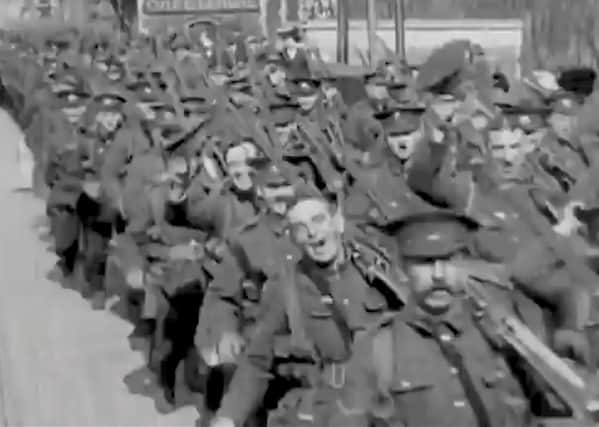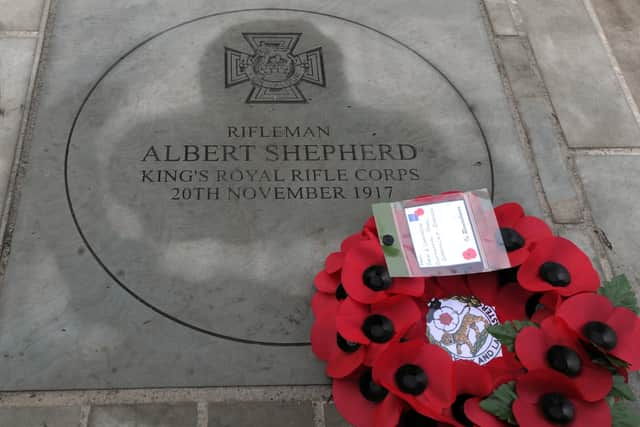How Barnsley’s history can shape our future for the better – Jayne Dowle


Everyone with an interest is welcome. It’s not political or judgmental. There’s no “fourth wall” of officialdom or any higher purpose except shared enjoyment of memories, observations and photographs.
Whether it’s a club trip to Blackpool, a big family wedding or one of the many football teams winning a cup, it’s bringing the past alive and providing interest and entertainment for more than a thousand members.
Advertisement
Hide AdAdvertisement
Hide AdAnd the great thing is that people of all generations are taking part. This includes my own fiftysomething demographic. When do our own memories become history? It’s an interesting question.


You know you’re getting on a bit when you connect immediately with photographs from the 1960s and 1970s, when you wore that kind of psychedelic Crimplene dress or dreamed of riding a Chopper bike.
I’ve had one foot in the past for almost 20 years now, working in both a professional and volunteer capacity on community history books and projects.
I’ve been honoured, and I mean that, to interview some very elderly individuals who have been kind enough to share memories which now stretch back a century or more. Perhaps the most indelible was “Auld Lizzie”, a Barnsley lady aged 103, whom I interviewed in 2005.
Advertisement
Hide AdAdvertisement
Hide AdHer recollections of the First World War, her father’s work as the village postman, her wedding in the 1920s and travelling to the local maternity home in labour on the tram were crystal clear.


I still have the tape of our conversation, kept safe because the archaic words that she used, and the way she ordered her sentences, should be preserved for posterity.
Listening to her voice was like seeing and hearing history come alive before me. I was so moved by the whole experience I named my daughter after her.
Back then, I was proud to act as a conduit, bringing my professional experience to bear on creating a book that featured Auld Lizzie and a number of other contributors sharing their life stories.
Advertisement
Hide AdAdvertisement
Hide AdHowever, social media is now giving direct voice to many others, each with their own story to tell. The important point here is that this movement is happening for the people, by the people.
This is ordinary history, largely, but not entirely, coming from people who grew up working class. These are often family photographs they share, imperfect and blurred. The captions and text aren’t cleverly argued or underlined with academic references.
However, the process is creating an immediately accessible repository of experience, which until now might have been discounted as irrelevant or filed away under a patronising heading by a social policy researcher.
The obligations the pandemic has put us under – to stay at home, eschew usual social pursuits and find a way to pass these long winter evenings – has helped people to reflect on their own personal history.
Advertisement
Hide AdAdvertisement
Hide AdTogether, all these individual histories are helping to create a new national narrative.
Here in Yorkshire we have a champion in Dan Jarvis, mayor of Sheffield City Region and Labour MP for Barnsley Central. He argues that Welcome to Yorkshire should do more to recognise and promote our history.
He would perhaps be interested to hear that there is a huge groundswell of support for his ambition to make history more accessible.
As anyone with an interest in history knows, it can’t be confined; one connection leads to another. I’ve seen similar groups springing up across Yorkshire.
Advertisement
Hide AdAdvertisement
Hide AdThere’s also the national Museum of Youth Culture, currently an online project documenting the lives of young people over the last 100 years.
So far the museum has pulled together more than 100,000 photographs, ephemera and writings from more than 400 contributors celebrating what it’s been like to grow up in Britain.
The dog-eared snaps of 1930s sports days and punk rockers won’t win any photography prizes but they tell it how it was.
There’s a new hunger to explore and understand our own past to help us come to terms with the present and the uncertain future ahead.
Advertisement
Hide AdAdvertisement
Hide AdLet’s not look back in anger, as someone once said. Let’s look back and learn. And that might just start with a dog-eared photograph, a half-remembered tale and the power of social media.
Support The Yorkshire Post and become a subscriber today. Your subscription will help us to continue to bring quality news to the people of Yorkshire. In return, you’ll see fewer ads on site, get free access to our app and receive exclusive members-only offers. Click here to subscribe.
Comment Guidelines
National World encourages reader discussion on our stories. User feedback, insights and back-and-forth exchanges add a rich layer of context to reporting. Please review our Community Guidelines before commenting.